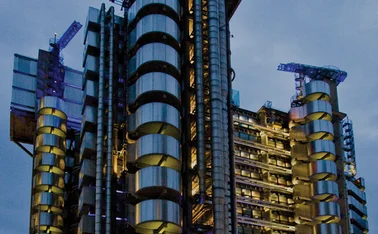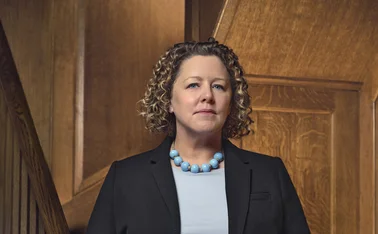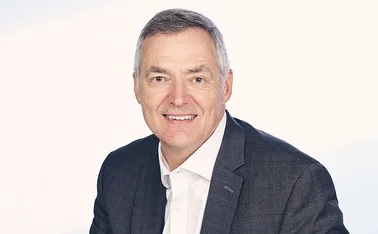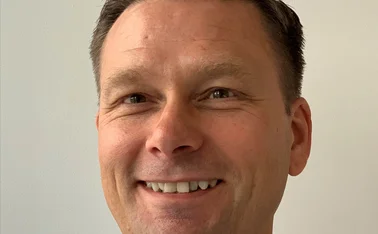
Trumped out of Iran: US politics and the London Market ‘gold rush’
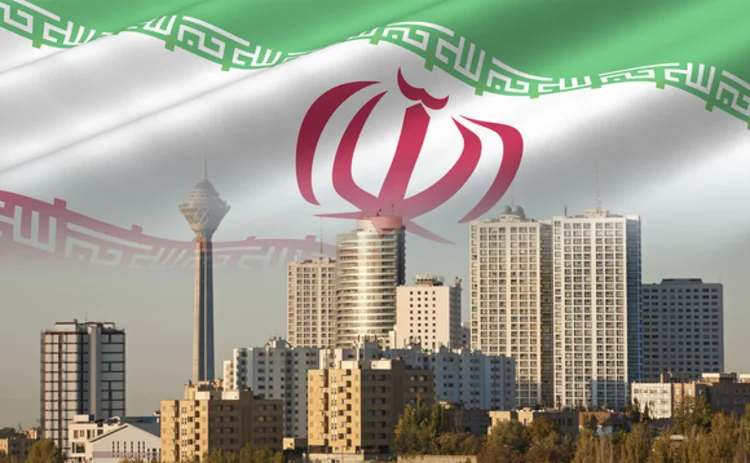
Need to know
- Lloyd's of London has met with Iran insurers to discuss syndicates in Iran's free zones
- Munich Re has expressed interest in providing life insurance services to Iran
- US sanctions are an ongoing issue for the London Market to take advantage of Iranian business
One year on from the lifting of sanctions on Iran, what has changed?
Lloyd’s of London has opened up talks with Iran’s insurance industry, discussing the potential of underwriting business in the Middle Eastern country and breaking a 12-year hiatus in official discussions since the imposition of sanctions on Iran.
Lloyd's CEO Inga Beale met with Abdul-Nasser Hemmati, president and head of the High Council of Insurance of Bimeh Markazi Iran.
Beale was reported to have said the Market’s 110 active insurance syndicates are willing to establish their presence in Iran providing that current issues related to money transfers in the insurance industry were addressed.
The report, in Iran's state-run Mehr News Agency, claims that Hemmati proposed the creation of a committee to provide grounds for the activity of Lloyd's insurance syndicates in Iran's free zones.
Hemmati said: “Given Iran’s economic development plan and expansion of the country’s insurance industry, the presence of Lloyd’s of London in reinsurance coverage and Iran’s key risks holds great significance.”
Mehr reported that in response, Beale urged two international directors of Lloyd’s to visit Tehran and conduct negotiations with senior officials of the High Council of Insurance of Bimeh Markazi Iran.
A Lloyd’s spokesman made it clear that the London Market had not made any firm plans to re-enter Iran but that the maturity of the Iranian market, post-sanctions, meant that it could no longer be ignored.
“Given the current sanctions environment there are clearly opportunities for the market.” the spokesman said.
“In light of the sanction relief we view Iran as one of the more mature markets within the region and intend to open up conversations as to what the insurance and reinsurance needs of Iran are and if we are able to meet those needs.
"Lloyd's has been invited to Iran for further discussions and we're very much committed to maintaining this dialogue with the Iranian market."
German involvement
In the week following the Lloyd's announcement, Iranian news broadcaster Press TV reported that German reinsurer Munich Re is currently considering plans to provide insurance services to Iran.
The media outlet reported that an announcement was made by Abdul-Nasser Hemmati during a visit to Germany.
Hemmati said that Munich Re executives, including CEO and chairman Nikolaus Von Bomhard and vice president Joachim Wenning, had expressed their interest in providing life insurance and other related services to Iran.
A Munich Re spokeswoman said the business was unable to comment directly on its present dealings in Iran but confirmed it was sticking by comments made in August 2015 during a half-year results press conference that the German insurer was “interested in pursuing primary business dealings with Iran”.
In January this year the majority of Iran-related EU sanctions and US secondary sanctions were lifted after Iran agreed to curb its nuclear programme in exchange for billions of dollars in sanctions relief.
The deal was the result of months of negotiations between Iran and the Western powers and was initially greeted with celebration, but in the months that followed many international insurers and reinsurers are still hesitant to enter the market.
In its latest country report, Axco Insurance Information Services found that Iran is the largest non-life insurance market in the Middle East and the 29th largest market globally as of 2014.
The report said Iran’s non-life market premium income, excluding its health business, grew 22.6% from 2014 to 2015. Indeed, before sanctions were imposed, economic development led to above-inflation premium growth in 2010-12, although the effects of international sanctions hindered growth in real terms from 2013 onwards.
“Despite all the challenges Iran has faced over the past few decades, Iran offers huge opportunities, which we see only growing as there is more foreign investment,” said Tim Yeates, managing director at Axco.
On paper, the figures suggest that Iran offers opportunity ready and waiting to be snapped up. Yet insurers continue to hold back, with many viewing the remaining US primary sanctions as the greatest hindrance to investing in the Iranian market.
These sanctions prevent any US persons from being involved in Iran-related dealings or transactions and forces US banks to reject or block all Iran-related fund transfers.
"Sanctions have been lifted but the lack of movement from the US banks, especially the failure to release the dollar is a real problem for insurers," said Freddy Porritt, broker liaison manager at Cobalt Underwriting.
Porritt said that remaining US sanctions and the lack of support from the US banks has made it difficult for the London Market to take advantage of Iranian business.
“Everyone is petrified of the big US banks. If your business is found to be in breach of any sanctions then they have the potential to make life very difficult for insurers, especially those that have business ties within North America.”
“Currently the insurance industry is observing the situation, observing the risk but not actively engaging in the Iranian market,” Porritt added.
“There simply aren’t many insurers looking at Iran. It is brokers with historical relationships within Iran that are making the first moves back into the market.
"As for new business, we have only received one inquiry about underwriting Iranian business over the last year and we're the only Shariah-compliant insurance company in London.
"Insurers have been going down to Iran but the situation has been more difficult than anybody originally believed it would be."
While the London Market may be eager to take advantage of the investment opportunities in Iran, without banking services its ability to realise those opportunities is limited.
The view that the banking sector’s caution has restricted Iranian trade is so prominent that in his New Year address Iranian Supreme Leader Ayatollah Khamenei stated that “they removed the sanctions in paper only.”
Despite some sanctions remaining in place the Iranian insurance market has experienced growth.
“The market in Iran is fast-growing,” said Mehdi Hakimi, manager of Bimeh Iran. “Currently there are 27 privately owned and two state-owned insurance companies active in Iran.”
Established in 1935, Bimeh Markazy Iran, or ‘Central Insurance of Iran’, is a government-owned insurer which held the largest market share at just over 40% in 2014.
Challenges that remain
Hakimi admits that although interest in the Iranian market is buoyant, the challenges that remain are enough to prevent the London Market from operating in Iran.
“Although most of the economic sanctions against Iran were lifted, some sanctions have remained in place. Particularly those related to human rights, proliferation of restricted goods and technology. The reality is that the remaining sanctions makes business harder,” Hakimi said.
“These remaining sanctions force UK companies to consider whether the business they are willing to do in Iran will come into conflict with US sanctions – this is something that can be very difficult to establish.”
Hakimi says that he strongly recommends that London Market insurers pursue their interests in entering Iran, as in his view the opportunity outweighs the risks.
If the remaining US primary sanctions weren’t enough to put off insurers from trading in Iran then November’s victory for Republican presidential candidate Donald Trump in the US election has made any potential trade all the more difficult.
The President-Elect has spoken openly of his dislike and animosity towards the Iran deal from the outset of his presidential campaign and the American billionaire has so far presented a divided stance on US-Iran relations.
Throughout his campaign Trump condemned the Obama administration for badly negotiating the deal. "My number one priority is to dismantle the disastrous deal with Iran," he told the American Israel Public Affairs Committee in March.
"A Trump White House could see the potential unravelling of the Iran deal," said Nik Gowing, co-author of global risk report: Thinking the Unthinkable.
Speaking at the Association for Risk and Insurance Management Professionals' forum in November, Gowing said that comments made by Trump on the campaign trail paint a bleak picture for the future of US-Iran relations.
"Whatever decisions the Trump administration make on Iran, the knock-on effect will have global repercussions. Any business involved with Iran at present, or hoping to do so in the future, will need to reevaluate the potential risks of operating in the region."
A member of the World Economic Forum's Global Agenda Council on Geo-Economics, Gowing acknowledged that international commitment to the agreement remains strong at present with China, Russia, France, Germany, and the UK pledging to stand by and promote the deal.
Political uncertainty and the remaining US sanctions are not the only cause for concern for UK insurers, said Henry Smith, associate director at Control Risks.
“There is a whole myriad of other issues and challengers that need to be considered,” Smith said. “The sanctions are understandably the first port of call for insurers. However, this is only one element in a much broader category of risks that insurers will have to face if they’re to enter Iran.”
Smith says that reputational risk is a factor that needs to be considered, as shareholders, customers and regulators will all want to know the details of a business’s financial dealings in Iran.
Political uncertainty, both abroad and at home also poses a risk. Like Gowing, Smith views a Trump-led White House as a threat to London Market investment in the region.
“There is very little expectation that the remaining sanctions are going to be lifted,” Smith said. “This is made more complicated with Trump in the White House as it is difficult to tell exactly what Trump’s view is on the subject.
“Previously Trump has criticised the sanctions for being bad for US business but at the same time he has shown open hostility towards the region.”
Political issues
Despite the potential political issues, Smith says that Iran is a country very much open for business and holds ample opportunity for any business that is serious about making a steps into the market.
“If a company is ever going to fully understand whether or not they will be exposed to any sanctions; they will need to get to know every entity involved in their business dealings within Iran,” Smith said.
“Conducting due diligence on your partners will not be enough; this may be banks, clients, lawyers, even in-country facilitators. This will mean looking into the profiles, backgrounds, financial and business connections of every entity that you come into contact with to ensure that both you and your connections are compliant with sanctions.
“The sanctions in place are complex but are by no means impossible to work around, providing there is willingness within the company leadership to put the work in.”
The business risks of entering Iran are the same as they would be in any other developing or newly-opened market, Smith said: “If an insurer can get this right and has the risk appetite, there is tremendous opportunity on offer in Iran.”
Only users who have a paid subscription or are part of a corporate subscription are able to print or copy content.
To access these options, along with all other subscription benefits, please contact info@postonline.co.uk or view our subscription options here: http://subscriptions.postonline.co.uk/subscribe
You are currently unable to print this content. Please contact info@postonline.co.uk to find out more.
You are currently unable to copy this content. Please contact info@postonline.co.uk to find out more.
Copyright Infopro Digital Limited. All rights reserved.
You may share this content using our article tools. Printing this content is for the sole use of the Authorised User (named subscriber), as outlined in our terms and conditions - https://www.infopro-insight.com/terms-conditions/insight-subscriptions/
If you would like to purchase additional rights please email info@postonline.co.uk
Copyright Infopro Digital Limited. All rights reserved.
You may share this content using our article tools. Copying this content is for the sole use of the Authorised User (named subscriber), as outlined in our terms and conditions - https://www.infopro-insight.com/terms-conditions/insight-subscriptions/
If you would like to purchase additional rights please email info@postonline.co.uk




